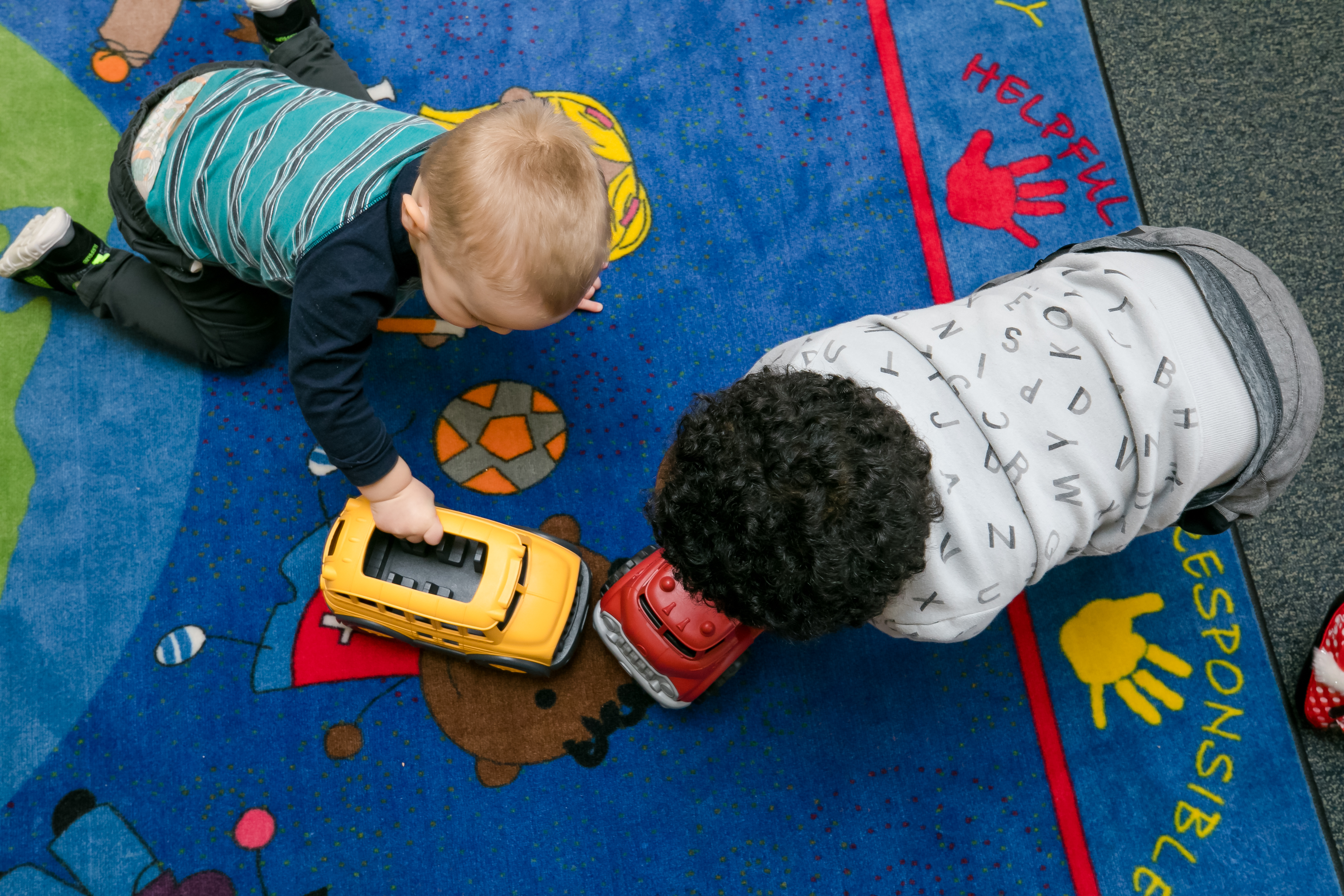November 7, 2023
Play-Based Curriculum: The Benefits for Your Child’s Early Education
Discover the advantages of a play-based curriculum for your child’s early education. Find out why it’s a great choice for their learning and development.

Are you a parent considering play-based learning for your child? One of the most effective ways to set up your child for success is to allow them the opportunity to play with their peers and engage in the activities they find the most fun.
If you haven’t decided on an early childhood education program that’s right for your family, read on! Here are some reasons why a play-based curriculum is the best choice for your child.
Understanding Play-Based Curriculum
A play-based curriculum is an educational approach that places play at the heart of learning. It recognizes that play is a fundamental aspect of a child’s development, allowing them to explore, experiment, and make sense of the world around them. This approach is typically employed in early childhood education, but its benefits extend beyond the early years.
The root of this approach encourages children to engage in activities that are enjoyable and intrinsically motivating. Play provides a context for kids to develop various skills, including problem-solving, creativity, social interaction, and emotional regulation. It naturally promotes cognitive, physical, and emotional growth in an enjoyable environment.
Stimulating Learning Process
Educators are crucial in facilitating and extending play opportunities, providing guidance and materials that stimulate learning. The curriculum is flexible and adaptable, allowing children to pursue their interests and passions, which fosters a love for learning. It’s a holistic approach that values the individuality of each child and recognizes that children learn at their own pace.
Research supports the effectiveness of play-based curricula in fostering early academic and social skills. In fact, for children younger than eight years of age, guided play was more effective for teaching academic content than direct instruction, according to the Institute of Education Sciences and recently published meta-analysis finds.
Play-based learning not only prepares children for future academics but also promotes a lifelong love of exploration and curiosity. Understanding this curriculum approach is essential for parents, teachers, and policymakers to provide a solid foundation for a child’s education and personal development.
The Benefits of Play-Based Curriculum
1. Active Learning
A play-based curriculum offers many benefits for your child’s early education. One of the primary advantages is that it promotes active learning. By engaging in play and hands-on activities, children are encouraged to explore and discover their interests. They are not passive recipients of information but active participants in the learning process. This approach enhances their motivation to learn and facilitates the development of critical thinking and problem-solving skills.
2. Educational Goals Seamlessly Embedded
At our centers, children can choose activities that interest them. Whether building blocks, pretending to be a doctor or a chef, or engaging in a group art project, each play activity provides a learning opportunity. Educational goals are seamlessly embedded into play, making the learning experience enjoyable and meaningful. For example, building with blocks teaches spatial awareness and problem-solving, while engaging in group role-play helps develop social skills and cooperation.
3. Enhanced Retention of Information
When education is associated with enjoyable experiences, it becomes more memorable. By actively experiencing concepts, children are more likely to retain the data and build a deeper understanding of the subject matter. This supports long-term retention and knowledge application.
4. Development of Essential Life Skills
Through play, children develop their language and communication skills as they interact with others, negotiate roles, and discuss ideas. They also learn to regulate emotions, resolve conflicts, and establish self-control. These social and emotional skills are invaluable for navigating the world’s complexities and building healthy relationships.
5. Holistic Development
Unlike traditional academic approaches that solely prioritize cognitive development, a play-based curriculum recognizes the importance of holistic development. It acknowledges that children are multifaceted beings whose story extends beyond academics. In a play-based setting, various types of play are incorporated, such as dramatic play, constructive play, and physical play, to support the overall growth of a child.
6. Tailored to Individual Needs
Every child is unique and learns at their own pace. One of the significant advantages of a play-based curriculum is its ability to cater to individual needs and learning styles. By allowing children to engage in activities they enjoy, educators can observe and understand each child’s strengths, weaknesses, and areas for growth.
7. Encourages Creativity and Imagination
Creativity and imagination are essential skills that contribute to a child’s cognitive, emotional, and social growth. The play-based curriculum provides ample opportunities for children to express their creativity and exercise their imaginations.
8. Promotes Social and Emotional Skills
In a play-based curriculum, socialization and the development of emotional intelligence are integral components. Play activities provide a natural context for children to interact, collaborate, negotiate, and communicate effectively with their peers and educators.
9. Sets a Positive Tone for Learning
A play-based curriculum sets a positive tone for learning by infusing education with playfulness and fun. Learning becomes an enjoyable experience, and children develop a natural love for exploring new ideas and concepts.
Choose the Best Early Education Program For Your Child
When choosing an early education program for your child, there’s much to consider.
In our centers, we focus on a play-based curriculum that offers a range of benefits for your child’s education and development. By incorporating play elements, children engage in active learning, retain information better, and develop critical thinking and problem-solving skills. This approach also supports the holistic development of children, catering to their physical, social, emotional, and cognitive needs. A play-based curriculum fosters creativity, imagination, social skills, and a positive attitude toward learning.
Say goodbye to the old-school, regimented curriculum and hello to a natural and enjoyable learning approach that focuses on the whole child.
Visit our website to learn more about early education programs for your child.